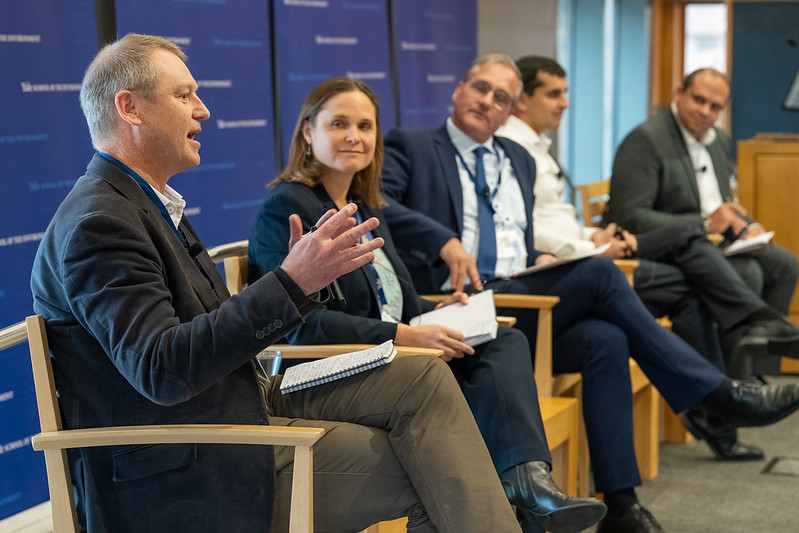On November 9-10, IDEEA Group Director Carl Obst had the privilege to participate in the Climate, Environment and Economic Growth Conference at Yale University.
Day 1 of the Conference highlighted the significant body of research that is underway to bring together economic and environmental modelling work at landscape and global scales to provide a richer understanding of the climate and environmental challenges that we face.
Day 2 of the Conference was more retrospective, celebrating the 50th year since the publication of Is Growth Obsolete? – the seminal work of Nobel laureates William Nordhaus and James Tobin.
That paper highlighted the relevance of moving beyond standard measures of GDP in assessing economic welfare. Although it has been 50 years in the making, the various sessions through the day were able to demonstrate substantive levels of current activity in broadening the measurement agenda. The US Strategy on Natural Capital Accounting and the work of the US Bureau of Economic Analysis on ‘GDP and Beyond’ were both highlighted.
Carl took part in a panel session that discussed the:
- history and role of the UN System of Environmental Economic Accounting (UN SEEA)
- extensions of the System of National Accounts (SNA) to consider well-being and sustainability
- corporate work on natural capital
- importance of distributional data both spatially and across population groups.

A core message across the 2 days was that working collectively is fundamental. Remaining in economic and environmental silos is simply inappropriate and great research is of limited value unless it is applied as part of standard measurement or policy practice. While these messages are not new, they must continually be reinforced so that we can keep connecting and finding better solutions.
The 1973 paper concluded that economic growth was not obsolete, recognising that the general ambition of policies aimed at securing economic growth is improving all people’s wellbeing. In that broad sense, this ambition remains reasonable.
What has increasingly been shown to be inappropriate, and as identified in the 1973 paper, is using GDP as a single measure of economic growth and a proxy for wellbeing. It does not reflect the disparities in income, consumption and wealth among people, nor integrate the costs of environmental degradation or the many non-market benefits that nature provides.
Working to address these limitations in measurement and supporting more informed decision making that recognises our connection to nature, including the effects of climate change, was at the heart of the Yale conference and is at the heart of our work at IDEEA Group. There are many challenges but we have little choice but to tackle them as best we can.
